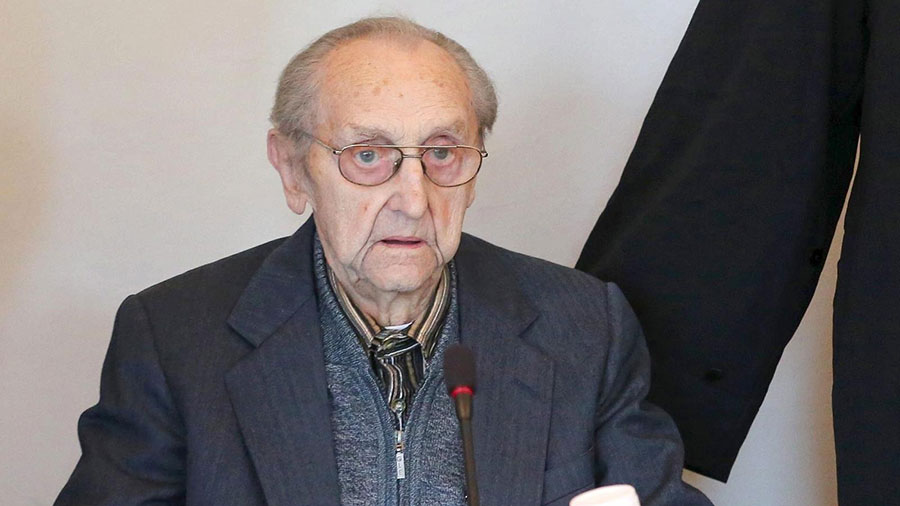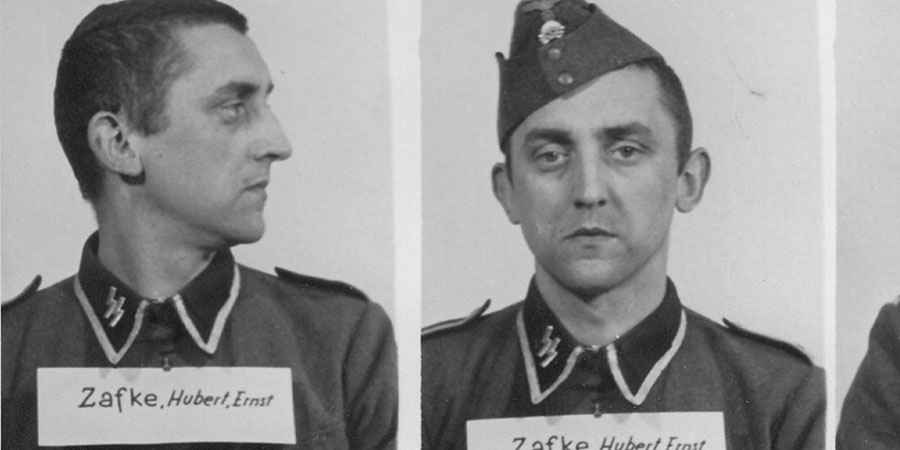Following numerous delays due to health issues, the trial of Hubert Zafke, a former Nazi paramedic who worked in Auschwitz, started early on Monday.
Zafke was intended to be tried in February, but the judge decided that, besides suffering from heart conditions, Zafke had severe suicide thoughts and was not fit to stand trial. The judge called for the trial to resume after a medical exam was presented on Monday. The charges comprehend 3,681 counts of accessory to murder, due to Zafke being a witness of prisoners being sentenced to death by gas chamber.

A 2016 WWII Nazi’s trial
Prosecutors tried to have Judge Klaus Kabisch removed from office by accusing him of bias by allowing Zafke to avoid being tried at the start of 2016. The trial ended abruptly after two hours when a court physician announced that Zafke’s blood pressure rose to 160:90. Judge Kabisch argues that the law requires the accused to be physically fit to stand trial.
Zafke was stationed in Auschwitz for one month in 1944. He saw over 3,000 Jews arrive the concentration camp aboard 14 trains, among which the court believes that Anne Frank and her relatives were included. Zafke’s unit performed the killings by filling the gas chambers and executing the prisoners, while also providing assistance to the military personnel running the concentration camp.
Although he was a witness of murder Zafke’s attorney argues that he did not commit any crimes at the concentration camp, although non-compliance to military orders is usually taken under special circumstances if the subject is being tried for obeying its superiors.
‘I was just following orders’
Nuremberg defense, also known as Befehl ist Befehl – “an order is an order”- is a plea that precisely proposes that a member of a hierarchical institution such as military or police cannot be held guilty if it was ordered by a superior to commit the crime.
During the Nuremberg trials, most of the Nazi officials pleaded to be following orders, but the London Charter of the International Military Tribunal determined that such defense was not enough to escape punishment, only to lessen it.
One of the first cases of the WWII that saw such defense was the trial of Anton Dostler, a Nazi general that defended himself claiming that he followed the Commando Order, issued by Hitler to execute any Allied commando without a trial immediately. Dostler was tried and executed by the U.S. in 1945.
Dostler’s case was vital for the Nuremberg trials, as the majority of orders issued by the Third Reich were to be considered war crimes, as is Zafke’s case even if he was just a doctor witnessing the gas chamber executions.

Guilty or not guilty?
For the Nuremberg trials, several principles were set in order to make sentencing more humane and coherent with existing laws. The principles state exactly which precedents apply to war criminals and if they are entitled to punishment. The last principle, Principle VII states:
“Complicity in the commission of a crime against peace, a war crime, or a crime against humanity as set forth in Principle VI is a crime under international law.”
Whereas Principle VI states that crimes against humanity include murder, extermination, enslavement, deportation, and persecutions based on politics, race, or religion.
Following the Nuremberg principles, which were the main guidelines for sentencing hundreds of Nazi officials accused of inhumane war crimes, Zafke should be sentenced.
The trials of previous Nazi doctors
But among the tried Nazis in Nuremberg, there were 23 doctors, among which some were acquitted of their war crimes. Kurt Blome was the Deputy Reich Health Leader and main director of the Reich’s cancer research wing. Blome was acquitted and died in 1969. Blome admitted being ordered to experiment with plague vaccines on prisoners. He was charged with practicing euthanasia and human experimentation, but Blome assumed responsibility for the research. It was then revealed that the U.S. intervened in his trial to have him acquitted to study bacteriological warfare, nerve gas and to work on biological and chemical weapons.
A more notable and high-ranking doctor was Paul Rostock, Chief Surgeon of Surgery in Berlin, also acting as Chief of the Office of Medical Science and Research and Reich Commissioner for Health and Sanitation. He was also acquitted and died in 1956. After being found innocent, he started documenting an accused’s perspective on the Nuremberg Doctor’s Trial, but he could not finish the project and then dedicated himself to being a medical supervisor at the Versehrten Hospital in Possenhofen.
The physicians found guilty were sentenced to death by hanging as personal involvement of each accused was taken into account for sentencing.
But now it appears that Judge Kabisch could not force Zafke to trial, as he was too physically weak and it is of no use to sentence a man just before sending him to the hospital to face the possibility of dying. In order to carry out a fair and coherent trial, the judge should expect the accused to be in a stable condition to deliver a sentence. An accused can plead insanity, incompetency, diminished capacity, immaturity, compulsion, necessity, self-defense, and many other defenses, but none of these allow for a physically-ill accused to stand trial.
Source: Associated Press

Ridiculous.